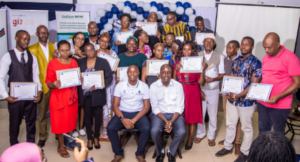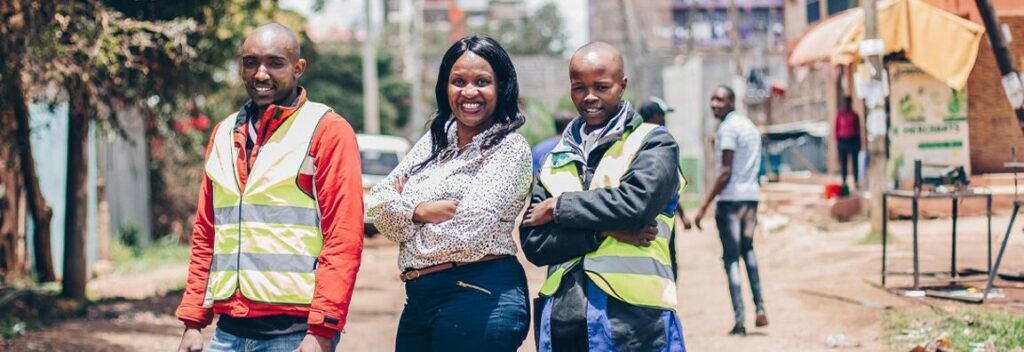January is Human Trafficking Prevention Month: Part 2 By: Justice Venture International [As we start the new…
The Power of a Job
By Thomas Kincaid, Senior Program Officer
It has been over 10 years since Jim Clifton, Chairman of the Gallup organization, wrote about what he called “one of the most important discoveries Gallup has ever made.” In a poll across 160 countries, the data revealed a new personal dream for most of the globe. Gone were the days where respondents first listed peace, freedom, or family. Now, most people simply want a “good job.”
Cynthia Mwikali knows this need well…because she is actively working to meet it.
Cynthia and her husband are the entrepreneurs behind Tuscan Sun Builders Hardware. Only two years old, the firm builds houses in Kenya. But more importantly, Tuscan already employs 13 people. What’s it like to work for Cynthia? “They are happy to work with us and to be here. I thank God. He shows me how to best invest in them.” (Find out more about Cynthia and her business here.) 
According to Sinapis Group, of the 5 billion people who make up today’s working-age population, 84% live in developing countries. 70% of this population work in informal, low-paying jobs. These jobs not only lack stability or insurance or retirement benefits; most of these informal work scenarios lack basic labor law and safety protections.
Most of us have had jobs with both advantages and disadvantages. We’ve had jobs that brought out the best of what we had to offer, and jobs that perhaps weren’t the best fit. But very few reading this post will have experienced the rampant insecurity that is constitutive of an informal job in the developing world. Far from just financial challenge, these employment situations can have enormous physical dangers without any form of safety net for the worker or their families.
It’s hard to overstate the contrast of having a “good job.” Definitions vary, but for our purposes a good job is one that includes clear, consistent, family-sustaining market-driven compensation based on objectively measurable outputs (i.e. time or task outputs), is physically and mentally safe, is free from abuse, and exists in the context of a functioning legal system able to protect workers. Such jobs are critical to the creation of flourishing families, communities, and community institutions (including churches, hospitals, and governments).
As in the developed world, most of these jobs will come from entrepreneurs. That reality creates an opportunity: Entrepreneurs need God-given gifts and drive. But to create good jobs, entrepreneurs need training, mentoring, and spiritual and ethical formation. That’s where the Foundation’s grantees are doing terrific work.

On a recent visit to Burundi with another Foundation grantee, HOPE International, we encountered an economic context that is among the most dire in the world. According to the World Bank’s 2022 numbers, Burundi’s per capita GDP was $238.40—the lowest of any country. Extremely poor nations like Sierra Leone and Somalia were nearly twice as wealthy by this measure ($461.40 and $461.80, respectively). Obviously, the distance from the United States ($76,398.60) is so great as to be essentially meaningless for comparison.
But in visiting HOPE savings groups in Burundi, we also encountered economic green shoots amidst that economic desert. We encountered entrepreneurs—mostly women—who were creating small businesses providing for themselves and beginning to employ others. The skills necessary for that growth came alongside training, community, and discipleship. It was tremendously encouraging to see quality jobs being created.
——
The Rees-Jones Foundation has a long and proud legacy of direct service—of directly investing to meet the needs of the suffering. We’re finding great joy in coming alongside these men and women who are changing their own contexts and providing good jobs for people in some of the poorest contexts on earth. With a “good” job, discipline, and faith, we are grateful to have witnessed lives changed.
Share this post:
Category: Uncategorized
January is Human Trafficking Prevention Month: Part 1 By Shellie Velasco, Program Officer [As we start the…
Welcome to 2025 By Adrian Cook, Director of Research & Evaluation “But the steadfast love of the…

